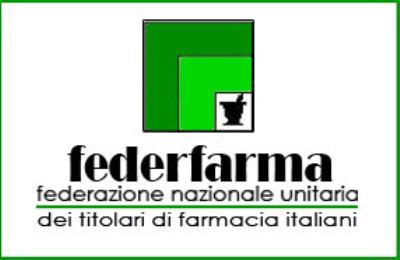Prosegue invece l’incremento del numero di ricette: +2,6%. Il rapporto evidenzia che, complessivamente, il contributo diretto delle farmacie al contenimento della spesa, nel 2013, è stato di circa 800 milioni di euro. i farmaci più prescitti sono inibitori pompa acida. THE REPORT
09 MAY – La spesa farmaceutica netta convenzionata Ssn, nel 2013, ha fatto registrare un calo (-2,5%) rispetto al 2012. Prosegue, quindi, la contrazione della spesa, in atto negli ultimi 6 anni. Continua, invece, ad aumentare il numero delle ricette ( +2,6%). E’ quanto emerge dai dati sulla spesa farmaceutica convenzionata, elaborati da Federfarma e presentati stamane nell’ambito di Cosmofarma Exhibition a Bo0logna.
“Il calo della spesa farmaceutica convenzionata netta – sottolinea una nota – è dovuto ai ripetuti tagli dei prezzi dei medicinali, alle varie trattenute imposte alle farmacie, al crescente impatto dei medicinali equivalenti a seguito della progressiva scadenza di brevetti e a interventi adottati a livello regionale come l’aumento della distribuzione di medicinali acquistati dalle Asl (distribuzione diretta o distribuzione per conto)”.
Federfarma points out that in 2013 the discount by price range produced savings of approximately 525 million euros, to which must be added approximately 72 million euros deriving from the 0.64% portion of the so-called pay-back, charged to pharmacies starting from 1 March 2007 and always extended.
The report also highlights that from 31 July 2010 the withholding of 1.82% on pharmaceutical expenditure was activated, increased, from July 2012, to 2.25%. This additional withholding “resulted in a burden for pharmacies quantifiable in 2013 at over 200 million euros. Overall, therefore, the direct contribution of pharmacies to containing expenditure in 2013 was approximately 800 million euros".
The hospital sector closes with lower results than in previous years but, in any case, higher than the 5% with marked growth in direct hospital services, in particular for specialist drugs (band H).
Distribution on behalf (Dpc) had an evolution equal to +13.2% generating 150 million euros more than the previous year for a total value close to 1.2 billion. The regions contributed in an uneven way to this trend depending on the decisions to activate and/or expand the distribution by account; in addition to the peaks of Sardinia (+79.7%) and Friuli-Venezia Giulia (+107.5%), Lombardy and Campania were certainly decisive, both exceeding +20% and generating a third of the growth by themselves. In terms of per capita expenditure in Dpc, however, Lazio and Calabria stand out with values almost double the national average of 22.5 euros per inhabitant.
The drugs in pharmacy segment recovers from the collapse of 2012 (-5.3%). However, ethical products confirm a still slightly negative trend (-0.3%) linked to the contraction in average prices due to the effect of patent expiries while demand continues to grow. The value of the ethical market, in fact, has remained stable as a result, underlines Federfarma, of the growth recorded by generic medicines both as a result of some important patent expiries during the year, and as a consequence of the decrees at the end of 2012 regarding the obligation to prescribe of off-patent drugs.
As regards, the most prescribed drug categories also in 2013 are acid pump inhibitors (drugs for gastritis, ulcers, gastric reflux), which also continue to show a significant increase in consumption (+6.1% compared to 2012). Within the category of antihypertensive drugs, the use of ACE inhibitors decreases and that of beta-blockers increases. The most prescribed medicinal product, also in 2013 was cardioaspirin (antiplatelet drug), despite a drop of -3.5% compared to 2012, followed by eutirox (thyroid function drug), with an increase of +2.1%, and from lasix (diuretic). The increase (+46.7%) of basic prescriptions (drug for vitamin D deficiencies) continued in 2013 as well. The prescriptions of normix, a drug against intestinal infections, are also growing strongly.
09 May 2014 – dailyhealthcare.it
